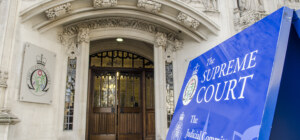COVID-19 and charities: Charity governance FAQs

Preena Patel Solicitor
This was co-authored by Preena Patel, Solicitor, and Sophie Peach, Paralegal, in our charities team.
These FAQs for charities focus on charity governance questions around trustee decision-making, filing, serious incident reporting and safeguarding concerns. Our previous charity FAQs can be found on our COVID-19 Hub together with other insights and FAQs on a number of related areas which we hope you will find helpful.
Please check the Hub when you can, as this will be frequently updated with new developments. Please also feel free to raise any questions you have via the FAQs section, or get in touch with your usual BDB Pitmans contact.
-
1 Can we hold our trustee meetings remotely?
Pre-coronavirus, the Commission’s guidance on Charities and Meetings recommended that at least one physical meeting of the charity trustees take place each year and other meetings would be a question of the terms of the charity’s constitution – not all constitutions are sufficiently flexible to allow meetings to be held, eg, by telephone or online. Responding to the current crisis, the Charity Commission’s Coronavirus (COVID-19) guidance for the charity sector provides:
‘In the current situation, it is becoming increasingly difficult to hold face-to-face meetings. Some charities have clauses in their governing documents that allow them to meet virtually or to use telephone facilities, so we advise trustees to check their governing document and see if they can make amendments themselves to facilitate changes as to how or when meetings are held.
Where there is no such clause in your governing document and you decide to hold meetings over the phone or using digital solutions, we will understand but you should record this decision and that you have done this to demonstrate good governance of your charity.’
In essence, trustees should check their governing document first to see what powers they have and what other options (such as amending the document) may be available. However, the Commission accepts that, even if you do not have power in your governing document, being able to hold trustee meetings remotely is going to be essential at present and trustees need to take a pragmatic approach here to enable them to make the necessary decisions, with the technology available to them, to manage their charity during the crisis.
That does not mean that governance goes out the window – quite the opposite. It is more important than ever to make and record your decisions carefully right now. The Charity Commission’s guidance, It’s your decision, has sensible guidance for trustees here.
-
2 Can we take trustee decisions in writing?
A situation may arise where a decision is needed to be taken sooner than a remote trustee meeting can be scheduled. Again, trustees should refer to their governing document to check what is (or is not) permitted for trustees’ decision making.
The Charity Commission guidance, mentioned above is helpful here too, noting that, if making the decision without a meeting does not breach any requirements of the governing document the trustees can proceed if they all agree. There are some practicalities to consider here, eg:
- the trustees should agree the means by which they will make the decision – eg whether by email or some other form;
- they need to be clear when they are being asked to make a decision and how they should evidence it (eg a simple ‘I agree’ or ‘I don’t agree’ or something else); and
- they should be aware of security concerns, especially where a trustee may be using a shared email address – how will the trustees know that an email is from the right person?
It is also important to observe the other governance requirements for decision-making, such as dealing with conflicts of interests and, as ever, the trustees should be careful to record the decision.
If the governing document prohibits decision-making outside a meeting, or otherwise imposes conditions which are not practical under lockdown, then the position is likely to be as for the question above on remote meetings – see if there may be other options, such as amending the governing document but, if the trustees decide they have to proceed this way, the Commission is likely to understand. The trustees should be aware, however, that they may be expected to justify why it was not possible to hold a meeting by remote means and they should take even more care over the decision-making and recording of the decision.
-
3 What if trustee illnesses / unavailability mean we do not have a quorum?
In the current uncertain times, trustees will need to react quickly in far from ideal situations. Where possible, trustees should take steps now to consider possible contingencies such as those among their number and/or key personnel falling ill or otherwise being unavailable. Eg:
- who will cover for key personnel (chief executive, chief financial officer etc) and who will deputise if the Chair is unavailable?
- if key administrative personnel are unavailable, who will cover and do you have access to all the relevant information (contact and log-in details, meeting schedules, relevant deadlines etc)?
- if you are concerned you may lack a quorum of unconflicted trustees, how will you pre-empt that? Is it realistic to recruit? Or can you change the quorum requirements?
- similarly, as referenced in the previous questions, what does your constitution say about decision-making and meetings? Is it fit for current purposes?
Planning and agreeing an approach now will help the trustees to weather any of these contingencies better, and with less strain on those involved, should they arise.
If you are already in a situation where you do not have a quorum of unconflicted trustees available for decision-making, and you have no scope to change that, again you should look to the constitution to see what it says you are permitted to do in those circumstances. If that offers no help and the trustees proceed, you are taking a risk that the decision may be set aside, with potential personal liability if the decision may involve loss or a claim against the charity – so it is a serious situation. If you think you are in that position, we would say please pick up the phone to discuss it with us – there may be other options for you, but these need to be determined in the circumstances of the case.
-
4 I am a trustee in self-isolation and have been sent the charity’s annual accounts to sign but I have no printer to print it off and no way to send a signed version back. What are my options?
From speaking with the Charity Commission, we understand that they will accept an electronic signature on the accounts, but would advise the trustees to keep a record confirming that they had read the accounts and had authorised the electronic signature of one of their number in light of the current COVID-19 situation. If, therefore, one of the trustee number is able to add an electronic signature, then this should suffice provided the conditions identified by the Commission are met.
-
5 We are worried that we will not be ready to file our annual return and/or annual accounts with the Charity Commission on time. What can we do?
The Charity Commission has published guidance about filing annual returns during the pandemic. Wherever possible, the Commission urges charities to try to get their annual reports filed on time. However as an immediate step, the Commission has stated that where charities are due to submit an Annual Return imminently, but feel unable to do so, they can email the Commission to request a filing extension at [email protected], including the charity name and registration number. This topic remains under further discussion with the government, so updated announcements may appear in due course.
If you are unable to file your annual accounts on time, for example because of logistical difficulties with your AGM, the Charity Commission has confirmed in its Coronavirus (COVID-19) guidance for the charity sector that it will consider requests for a filing extension, on the same email address ([email protected]), again providing the charity name and charity number.
-
6 We are a charitable company. We think we will be in difficulties in filing our accounts at Companies House on time. What can we do to avoid a fine?
The government has announced that, from 25 March 2020, businesses (which includes all companies registered by Companies House) will be able to apply for a three month extension for filing their accounts.
To avoid a penalty, it is still necessary to apply for the three month extension to be granted. Companies House has announced that if the application ‘is based on issues around COVID-19, you’ll be automatically and immediately granted a 3 month extension’. There are, though, some potential exceptions and Companies House still urges companies not to wait for an extension decision if it is possible to file by the deadline – please see the guidance.
Applications can be made through the Apply to extend your accounts filing deadline page.
Where charity accounts have not yet been approved, the Charities SORP Committee has produced guidance on COVID-19 control measures and charity financial reporting. This is an advisory document aimed at helping those preparing accounts, as well as auditors and independent examiners, consider how to report in light of the current crisis.
-
7 Should we continue to report serious incidents in the usual way?
Updated on 10 June 2020:
The Charity Commission FAQs, Coronavirus (COVID-19) guidance for the charity sector, acknowledge the challenges charities face at this time.
The Charity Commission initially asked trustees to continue to report, in accordance with its serious incident reporting guidance, and to use their judgment in deciding whether an incident is significant in the context of their charity and should be reported to it. However, on 3 June 2020, the Commission issued supplementary guidance and examples on reporting serious incidents in the pandemic.
If you are concerned about an incident which has arisen within your charity, or are unsure about whether an incident needs reporting, please get in touch with your usual BDB Pitmans contact and we will be happy to assist.
-
8 We want to set up a community volunteering group. What should we consider in terms of safeguarding?
The Charity Commission’s guidance, Coronavirus (COVID-19) guidance for the charity sector, acknowledges the ‘spirit of charity and community that brings people together’ and appreciates ‘that people will want to help others during the challenges we are all facing’. It goes on to note, however, that ‘now more than ever it is critical to ensure that charities protect and safeguard their beneficiaries, volunteers and staff’ and that this is ‘all the more relevant for those directly helping communities or vulnerable members of society who are self-isolating’.
The Commission’s guidance on safeguarding and protecting people will be an important resource to help identify and manage risks and to keep people safe. In addition, NCVO has produced guidance specifically aimed at protecting staff, volunteers and beneficiaries in the context of COVID-19.
The Disclosure and Barring Service (DBS) has also put together a Factsheet and FAQ document outlining DBS requirements for those organising a community volunteering group and also for individuals wanting to assist in their local community.
Comments
As we have noted previously, please do remember that, whatever challenges you are facing, there will be many other charities (and others) facing similar challenges and the regulators and your supporters will understand that you are making decisions in the most difficult of situations.
Please also remember that, as you face the prospect of having to make crucially important decisions for your charity, it is more important than ever that your decision-making processes take account of strong governance practices and that you are recording decisions appropriately. As noted above, the Commission’s guidance, It’s your decision, is helpful here.
We hope you find these FAQs helpful. We will be publishing more soon, but please raise with us any questions you have in the meantime.










